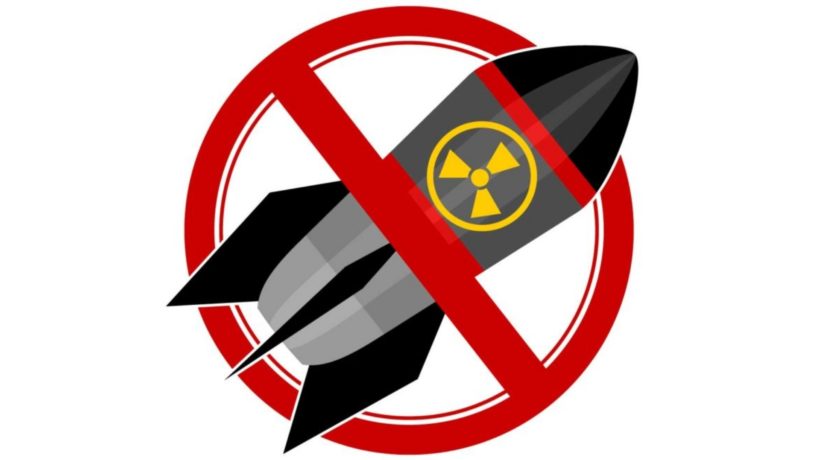After several postponements, the first Conference of States Parties to the Treaty on the Prohibition of Nuclear Weapons (TPNW) will take place in Vienna from 21 to 23 June 2022.
The current situation caused by the war in Ukraine and the Russian government’s threat to use nuclear weapons makes this conference the only multilateral meeting to make progress towards nuclear disarmament, which today is more urgent than ever. Russia’s threat, in addition to being highly irresponsible, highlights the danger and precariousness of the idea of nuclear deterrence. The destructive capacity of the existing nuclear arsenal calls for a fundamental change in relations between nuclear powers, and a significant first step would be their attendance as observers at the Vienna Conference.
This meeting aims to focus on the devastating humanitarian consequences of the use of nuclear weapons and has therefore set as its main objectives the implementation of the positive obligations contained in the treaty, which are set out in articles 6 (assistance to victims and environmental reparation), 7 (international cooperation and assistance) and 12 (universalisation of the treaty). The conference provides an opportunity to make victim assistance a central priority of this humanitarian disarmament treaty, as well as environmental remediation of areas affected by the use of nuclear weapons and the necessary international cooperation and assistance to implement both obligations.
Positive obligations are central to achieving the humanitarian objectives of the treaty and are intended to address the harm caused by past nuclear weapons use and testing, as well as to prevent any future harm. TPNW member states are committed to assisting victims under their jurisdiction and to repairing the damage to contaminated areas in their respective countries. The achievement of these humanitarian objectives will only be possible with the cooperation of all member states. Thus, each state has the right to seek and receive the necessary assistance from other member states of the treaty, and countries in a position to do so must provide the necessary technical, material and economic assistance to member states affected by the use of nuclear weapons.
The implementation of the provisions contained in articles 6 and 7 of the Treaty on the Prohibition of Nuclear Weapons will acquire the necessary relevance if at the conference member states call for the active participation of all countries, international organisations, civil society groups and communities affected by nuclear weapons. All voices must be heard so that in the conclusions of the conference the member states can adopt a final report, a declaration and above all a plan of action for the implementation of the positive obligations of the treaty.
The Vienna conference also aims to universalise the TPNW, i.e., to increase the number of countries adhering to it. For the civil society groups that are part of the International Campaign to Abolish Nuclear Weapons (ICAN), universalisation of the treaty should be a priority of the conference. To date, a total of 60 states have signed and ratified the treaty, and while at least 138 countries have expressed their support for the TPNW, ICAN considers it a priority for states that have signed up to the treaty to encourage others to do the same. Implicit in universalisation is a series of actions by member states to be taken in a variety of fora in addition to the conference. These include the United Nations, regional fora, bilateral agreements and national contexts.
The Vienna conference is the beginning of the roll-out of the TPNW and all countries, but especially those that possess or harbour nuclear weapons and those members of alliances that maintain nuclear deterrence as a strategy to ensure planetary security, should commit to the humanitarian disarmament objectives of the Treaty on the Prohibition of Nuclear Weapons and attend the Vienna conference as observers.
The ICAN campaign was pleased to learn a few months ago that NATO members Norway and Germany decided to participate. To date, the Spanish state has given no response to the many requests from local, national and international campaigns to accept the express invitation of UN Secretary General Antonio Guterres to participate in Vienna as an observer state. The situation caused by the invasion of Ukraine and the real danger posed by putting the nuclear arsenal on alert should be reason enough for the Spanish government to abandon the belief that nuclear deterrence is the guarantor of our security and make a clear commitment to disarmament by attending the Vienna conference as an observer state.
The Treaty on the Prohibition of Nuclear Weapons is a reality that makes the countries that possess these weapons of mass destruction and the majority of NATO member states uncomfortable because it signifies a paradigm shift in how to guarantee global security. The new humanitarian approach means banishing nuclear deterrence as a security strategy and putting the lives and well-being of people and the planet as the urgent reason for nuclear disarmament. Aware that the nuclear race is a race that cannot be won, more and more countries are embracing the new paradigm of joining the TPNW. Spain must follow the example of these countries and commit itself to the path towards peace, human security and disarmament that accession to the TPNW implies.
This publication is part of the campaign “10 Reasons to sign the TPNW “, which unites civil society entities at the state level with the aim of Spain’s accession to the Treaty on the Prohibition of Nuclear Weapons (TPNW), which entered into force on 22 January 2021.










